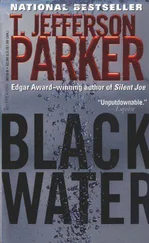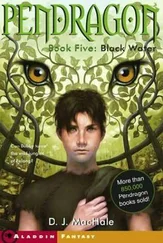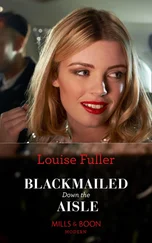He and his mother spent only eighteen months in Holland before emigrating to America — long enough to find out that she was not eligible for an army widow’s pension even though his father had been decapitated by the Japanese while in the service of the Dutch Colonial Army. Harper’s father had been half Dutch, half Indonesian, an Indo, which made Harper — or Nicolaas, as he was called back then — an Indo too. You needed to be all white to be white but only a small bit brown to be brown. ‘Your papa wasn’t Dutch enough for you and me to get the money, baby boy,’ his mother said, ‘but he was Dutch enough for the damn Japs to cut his head off.’ She said that kind of thing when she had been drinking. The damn Japs had cut his father’s head off and put his mother in a camp and as he had been inside his mother at the time, he’d had no choice but to go along.
He had no memory of the camp either — no direct memory, in any case. But his mother talked about it a lot when she was drunk or angry or both, which meant she talked about it for a substantial proportion of his early childhood. She told him the same stories often enough for them to form pictures in his head — they became his own memories even though he remained outside them, as if he had been there, watching his mother’s life before he was born. ‘It was 1942, baby boy, but the Japs made us call it 2602, can you imagine? They even said the sun rose when it did in Tokyo. You got beaten if they caught you speaking Dutch.’ In the pictures in his head he saw himself as a brave toddler, asking for food in Dutch, a massive Japanese soldier taking a stick to his back. Making up memories from the seeds of his mother’s stories was, after all, a lot more interesting than actually having them. Through these stories, he could remember what it was like for her to be pregnant with him in an internment camp, standing in a queue with her mess tin and homemade wooden spoon waiting for her tiny portion of all there was to eat, grey tapioca cooked over camp fires in huge vats. ‘You grew anyway,’ she said. ‘That’s how it works, the baby inside takes all the goodness it needs from the mother and the mother starves and gets sick.’ He saw his mother dressed in a tattered dress and wooden clogs, her taut belly as round as a basketball, matchstick arms and legs, cheeks hollow, hair falling out, and him curled up inside her, feeding off her, eating away at her internal organs. ‘And then, when I was at my biggest, when you were taking your time deciding you were ready, it was getting close to the rainy season. Man, that was the worst. I thought I would die. I thought I would just melt like an ice cream. My waters broke the same day the skies opened and the monsoon began. Water ran down my legs, baby boy, and down the sides of the buildings at the same time, and then it started pouring in through the roof where there were holes in the palm leaves. The road outside the shack flooded — I won’t call it a clinic or anything, it was just a shack with six bamboo bunk beds. They put the sickest on the lowest bunk so it would be easier to take the corpse away when they died. It was the filthiest place you can imagine, cockroaches and leeches, and I was screaming and screaming as I squeezed you out and outside there was a river where the dirt road had been and then pretty soon a river inside as it was only a dirt floor. Seriously, I thought I would die, and you would die with me, and the water would wash the shack away and we’d both be carried away on that river and after what I’d been through that seemed like it would be a pretty good thing to happen to both of us.’ Harper saw himself as a newborn baby, lying on his back on top of a brown river, waving his arms as he bobbed and floated and was carried away.
He and his mother had not been carried away by a flood. They had stayed in the shack with the palm-leaf roof and she had nursed him until she had fallen ill with an infection and nearly died, apparently, had come within an inch of it, ‘As any girl would giving birth in those circumstances, baby boy,’ and when he was badly behaved she liked to remind him how close to killing her he had come, just by arriving into the world. The ways in which he had nearly killed his mother seemed impressively various.
You had to bow to the Japanese soldiers whenever you saw them. You had to bow so low your nose was lower than your waist and you had to stay that way for a good few seconds and if you tried to straighten up too quickly, they hit you with a cane across the shoulders. ‘Happened to me once when I had you in my arms, just ’cos I didn’t bow quick enough on account of holding a baby. When he hit me my knees gave way but I managed to get a hand out in time to stop my fall before I fell on you. You were such a skinny little thing, you’d have snapped like a twig. Plenty of babies born in that camp didn’t make it, you know, that’s why you’ll always be my miracle .’ The emphasis on the words ‘my’ and ‘miracle’ was always the same. His mother, it seemed, had kept him alive by the sheer force of her love, all on her own. Perhaps that was where the mothers of those other babies, the ones that had died, had gone wrong. Maybe they just hadn’t loved their babies enough.
There were competing stories about how his father had actually met his end. His mother always said that his father had disappeared into the hills to fight for the Dutch army, and that he had been decapitated during the course of a fierce battle when eight gallant officers and men had held out against a whole hundred Japs. After their return to Holland, his aunt Lies, his mother’s elder sister, who featured in their lives both before and after Los Angeles, told him that his father had tried to save himself and his pregnant wife from the camps by hiding his uniform beneath the floorboards but then he had been caught out on the streets after curfew without a Rising Sun armband on. He had been beheaded right on the street corner, at the end of their road. Aunty Lies told him never to raise the subject with his mother — which seemed a little unfair as his mother brought it up herself often enough when she’d been drinking — but he obeyed the injunction, understanding you couldn’t really ask for more details of the two accounts when decapitation was the common theme.
They had lost all their belongings in the war so there were no photographs, no family records. Later, he wondered if his parents had really been married or if he had even had a father at all. The evidence for his father’s existence came only through stories that seemed to have a suspiciously mythic quality in both competing versions.
*
Some nights in Los Angeles, in the small bedroom he shared with his baby half-brother, he would dream about his father’s head. In the dreams, it would be sitting on a shelf when he opened the linen closet in the hallway, just there on a pile of towels or, once, on one of his mother’s dresses stretched across the cupboard shelf like a picnic blanket. They were not frightening dreams; the head was always smiling and friendly and would talk to him. When he woke, he muddled through to consciousness with the warm and comforted feeling that lingers after a benign reverie and, for a moment, he would feel regretful upon realising it wasn’t true.
Later, when Harper had been sent back to Holland, after what happened, he would use his father’s decapitation as playground capital, when the white boys picked on him. He would save it up, then announce it, and ask them what had happened to their fathers in the war. Everybody had war stories, of course, often involving dead or missing fathers, mothers starved or bombed, older siblings who had perished before they could be known, but other people’s stories, however tragic, were rarely as good for bragging purposes as decapitation.
Читать дальше












